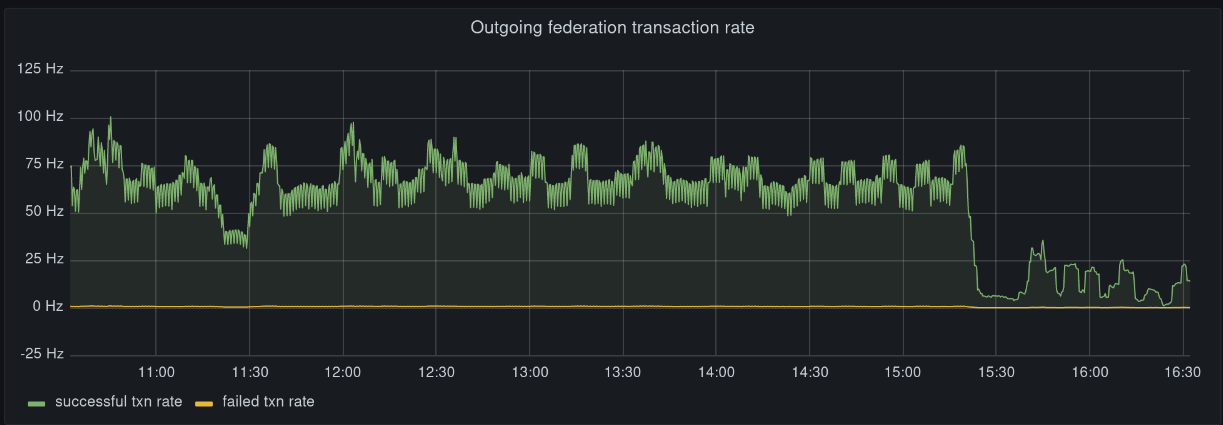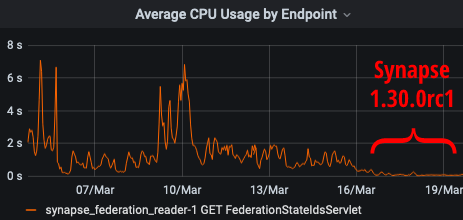Synapse 1.38.0 released
2021-07-13 — Releases — Dan CallahanSynapse 1.38.0 is out now!
NOTE: We released Synapse 1.38.1 on Thursday, July 22nd. It mitigates a client bug with Synapse 1.38.0's smaller sync responses which prevented new Element Android sessions from successfully participating in encrypted conversations. Server administrators are strongly encouraged to upgrade.
🔗(Big) Integers
Synapse's database schema used integer columns in a few places where values could potentially overflow a maximum value of 231. One such column is events.stream_ordering, which surpassed 231 on matrix.org last week.
To prevent overflows, Synapse 1.38 will automatically convert several integer columns to bigint as a background update. While homeservers will function normally during this task, it could result in increased disk I/O for several hours or days. Note that homeservers may need several gigabytes of free space to successfully rebuild associated database indexes and complete the upgrade.
See the upgrade notes for more details.
🔗Expiring Caches
Synapse has a new configuration option, caches.expiry_time, which can be set to enable evicting items from caches if they go too long without being accessed. This helps servers reclaim memory used by large yet infrequently used caches.
🔗Smaller Sync Responses
The response to /sync now omits optional keys when they would otherwise be empty. This can significantly reduce the size of incremental syncs, as demonstrated in #6579. Thanks to deepbluev7 for initially submitting this in #9919, which made it into this release via #10214.
🔗Everything Else
A few other items worth calling out:
- This release includes an experimental implementation of MSC2918: Refresh tokens, which adds initial support for complementary access / refresh tokens in line with OAuth best practices (#9450).
- Synapse now ships a script to review recently registered accounts, which can be useful in cleaning up servers in the wake of malicious, automated registrations like we witnessed during last month's spam attack.
- We've also fixed a few rough edges (#10263, #10303, #10336) in the spam mitigations from 1.37.1, and would encourage you to update.
- The Admin API for querying user information now includes information about a user's SSO identities in its response.
These are just the highlights; please see the Upgrade Notes and Release Notes for a complete list of changes in this release.
Synapse is a Free and Open Source Software project, and we'd like to extend our thanks to everyone who contributed to this release, including deepbluev7, dklimpel, fkr, and sideshowbarker




